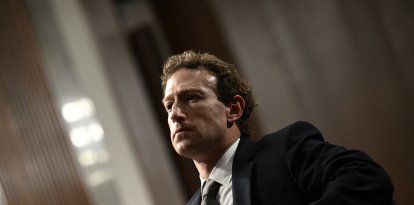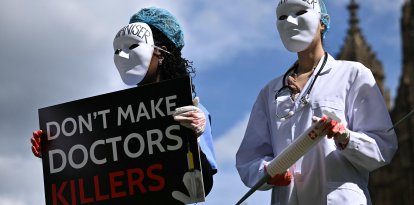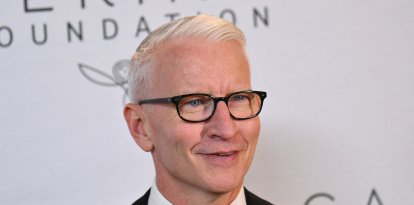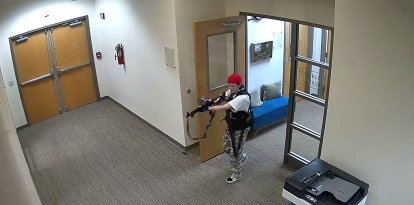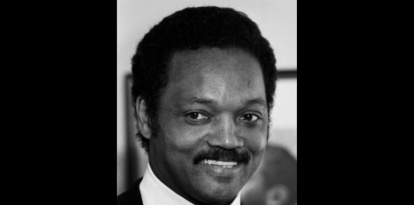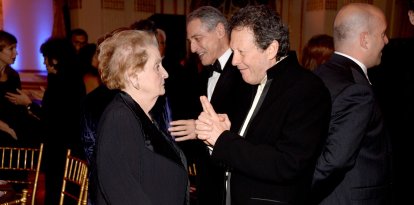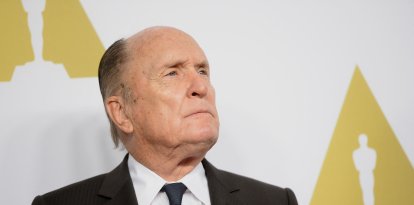"This guy is a fraud": A University of Cambridge professor, who specializes in disinformation, is caught sharing fakes
The Dutch academic Sander van der Linden mobilized an army of fake accounts to promote himself on Wikipedia.

(Cambridge University Press)
A psychology professor at the University of Cambridge, who calls himself a “misinformation researcher,” was exposed on social media for lying and sharing misinformation.
The Dutchman, Sander van der Linden, has quite a presumptuous profile at the University of Cambridge. In his bio, he says that he is a renowned academic with previous positions at Princeton and Yale who has been quoted or interviewed by major media outlets in the United States and the United Kingdom, including The New York Times, Rolling Stone, BBC, CNN, The Economist, NPR, Washington Post and Time Magazine.
He also promotes his book, “FOOLPROOF: Why Misinformation Infects Our Minds and How to Build Immunity,” which he highlights “as one of the most anticipated non-fiction books of 2023 and named a Financial Times Best Book of the Year, Waterstones Best Book of the Year, One of Nature’s Top 10 Books of 2023, A Notable Behavioral Science Book of 2023, and won the 2023 Best Psychology Book Prize from the British Psychological Society.”
However, the academic was exposed a few weeks ago for lying on X (Twitter) by statistician and writer Nate Silver in a viral debate related to the origin of COVID-19 and the two most important hypotheses about how the 2020 pandemic originated: in a laboratory accident or through natural transmission.
Professor van der Linden, citing old articles from more than two years ago, repeated the false claim that the Wuhan Chinese laboratory accident hypothesis is a “racist theory” with no scientific basis.
Silver did not hesitate to refute his position during their discussion, pointing out van der Linden as a disinformation expert who shares fakes publicly: “Dude, the scientific consensus is that a lab leak is entirely plausible. Even Dr. Fauci said that just this week. You’re still citing articles from 2 years ago calling it xenophobic to consider the hypothesis? You’re literally spreading misinformation!”
Various scientific studies, media investigations and intelligence agencies maintain that the possibility of a laboratory leak cannot be ruled out, especially because the theory of natural transmission has not yet been proven. At this point, it is almost impossible to determine the real origin of the pandemic. Van der Linden insists that the hypothesis of a laboratory leak is “racist” because “xenophobic” people politically exploited it.
In addition, he also said that the theory has no basis despite the fact that the Chinese government was reluctant to have independent organizations investigate the origin of the virus in the virology laboratories in Wuhan and persecuted the scientists, journalists and civilians who denounced the beginning of the pandemic in advance.
In short, in his arguments against Silver, van der Linden did not mention the evidence that exists against the Chinese regime and its opacity around the start of the pandemic, the controversial gain-of-function research to improve and enhance coronavirus, or the persecution in China against dissent that denounced the Wuhan Institute of Virology as the place where COVID-19 originated through a laboratory accident.
Researcher Paul D. Thacker, in his substack ‘The DisInformation Chronicle,’ mentioned the discussion between Silver and van der Linden and also exposed the latter for mobilizing an army of fake accounts to change his biography on Wikimedia and engage in self-promotion.
First, he shocked van der Linder by stating that, in his discussion with Silver, he tried to drag other experts into debating and defending him, including the questioned pediatrician, Peter Hotez, who funded gain-of-function studies in Wuhan carried out by researcher Angela Rasmussen and biologist Michael Worobey, whose research into the origin of the pandemic was denounced as “careless and unprofessional handling of statistical methodology.” That is, all experts whose opinions were not objectively impartial.
Later, Thacker charged against van der Linden, citing a user on X who exposed the Cambridge professor for conveniently altering his Wikipedia page.
“This guy is a complete fraud / pathological liar. He’s been repeatedly banned from Wikipedia over the last 10+ years for using an army of sockpuppets to create articles about himself with self-promotional material.”
The psychology professor was exposed because, in the discussion section of the Wikipedia page, editors discussed how several unrelated accounts kept adding entries to promote Sander van der Linden, his research and his most recent book.
The editors found that, between 2019 and 2023, unrelated accounts openly promoted the Cambridge professor on Wikipedia. Their conclusion was clear: van der Linden orchestrated this army of fake accounts for self-promotion.













